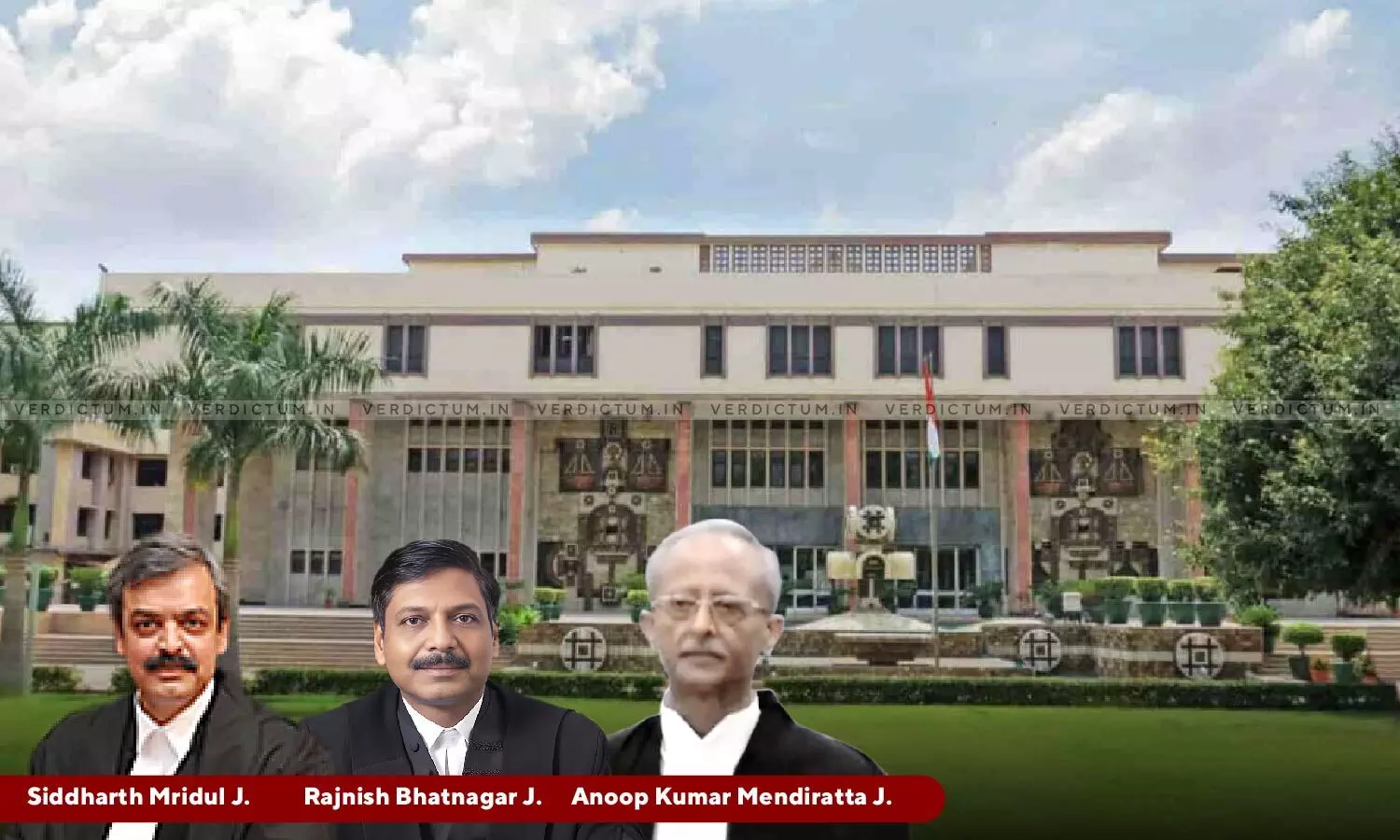
Need Stringent Evidence To Initiate Criminal Contempt Proceedings Against Advocates: Delhi HC Discharges Tis Hazari Lawyers In 2006 Contempt Cases
 |
|The Delhi High Court discharged the Show Cause Notice and disposed of the criminal contempt proceedings against the Tis Hazari Lawyers in the year 2006. The Court held that there was insufficient evidence to support claims of obstructing justice, engaging in physical altercations, or causing damage to property. Therefore, the Court noted that the allegations of obstructing the administration of justice could not be sustained.
The Bench of Justice Siddharth Mridul, Justice Rajnish Bhatnagar, and Justice Anoop Kumar Mendiratta noted, “Consequently, the material including the subject videos fail to provide any direct evidence connecting the damage allegedly caused to court rooms with the Advocates' protest. Furthermore, the videos do not furnish any evidence of Advocates manhandling their colleagues, obstructing the Administration of Justice, or supporting any other allegations made against the alleged Contemnors in the present proceedings. Hence, there exists no substantial evidence to establish obstruction of justice, acts of manhandling, or destruction of property. Therefore, it cannot be conclusively established that the act of protesting interfered with the administration of justice”.
Senior Advocate Sidharth Luthra appeared as Amicus Curiae and Senior Advocate Jagdeep Singh Bakshi appeared for the Respondents/ Contemnors.
A group of lawyers allegedly vandalized the Tis Hazari Courts in Delhi and severely disrupted the functioning of the court. The Delhi High Court took suo motu cognizance of the incident and issued show cause notices to 25 lawyers. Some of the lawyers provided undertakings that they would not engage in any acts of vandalism in the future. The High Court suspended the interim restraint order against some of the lawyers, which the Supreme Court modified to allow the lawyers to carry out their professional duties. Still, it prohibited them from engaging in any activity that the High Court had objected to.
The Court placed reliance on the definition of contempt as specified in Section 2(a) of the Contempt of Courts Act (CC Act). The Bench observed that civil contempt refers to intentionally refusing to comply with court orders or violating an undertaking given to the Court, whereas criminal contempt includes acts like wilful disobedience to Judges in Court, disrespectful behaviour towards Judges, defamation of Judges or Courts, interference with the judicial process, or any act that prejudices the course of justice.
In this context, the Court observed, “The definition of contempt is specified in Section 2 (a) of the said Act, which states that “Contempt of Court” refers to either civil contempt or criminal contempt. “Civil Contempt” as per Section 2 (b), pertains to the intentional refusal to comply with any judgment, decree, direction, order, writ, or other legal process of a Court, or the intentional violation of an undertaking given to the Court. On the other hand, “criminal contempt” defined under Section 2 (c), encompasses the publication (whether through spoken or written words, signs, visible representation, or other means) of any matter or the commission of any act that: scandalizes or tends to scandalize, or lowers or tends to lower the authority of any Court; prejudices, interferes with, or tends to interfere with the proper course of any judicial proceeding; or obstructs or tends to obstruct the administration of justice in any other manner. Axiomatically, any intentional refusal to comply with a Court order to perform or abstain from performing an act is regarded as civil contempt. Civil contempt arises when the Court‟s authority is invoked or exercised to ensure compliance with its orders”.
The Court noted that stringent evidence is needed to initiate proceedings against Advocates. The Court held that it could not conclusively establish that the protesting interfered with the administration of justice. The contempt proceedings have been pending since 2006, and the alleged respondents have expressed deep remorse, stating that they have the utmost respect for the judiciary and never intended to undermine its dignity.
“Further it is relevant to highlight that the present contempt proceedings are pending adjudication since 2006; and the Sword of Damocles‟ has been hanging for the past 17 years, on the alleged Contemnor/Respondents. Additionally, during the course of the present proceedings all the alleged Contemnors/Respondents have also expressed their deep remorse and have stated that they have utmost respect for the institution of judiciary and that it was never their intention to cause any distress or to do anything that could be construed as undermining the majesty and dignity of the Court of Law”, the Bench observed.
Accordingly, the Court discharged the Show Cause Notice and disposed of Criminal Contempt Proceedings.
Cause Title: Re: To Consider Suo Motu Contempt of Court v. Proceedings Against The Tis Hazari Court Lawyers